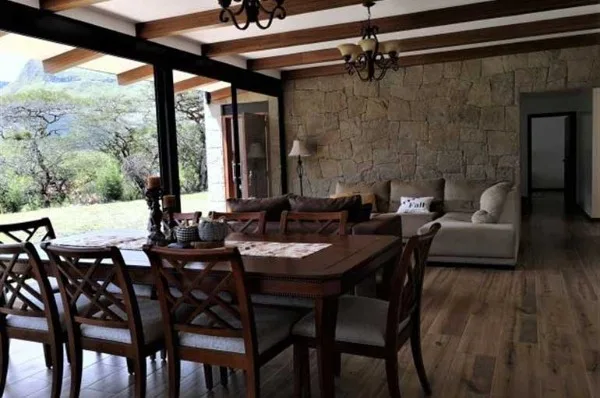Economist suggests that Correa is out of touch with Ecuador’s economic crisis
By Ramiro Crespo
After a debate over the economy last year proved unsuccessful for president Rafael Correa, he went back to the tried and true, if stale, format of being interviewed by three journalists (former CNN journalist Alberto Padilla, Ecuadorian government TV journalist Carlos Rabascall, and Orlando Pérez, the controversial editor of government newspaper El Telégrafo). This time, the scandal even surpassed that of the previous edition.
Ecuadorian government TV journalist Carlos Rabascall, and Orlando Pérez, the controversial editor of government newspaper El Telégrafo). This time, the scandal even surpassed that of the previous edition.
Asked by Padilla about the economic situation, Correa replied that, compared with the country he inherited in 2007, “we’re now a middle-class family, with a cement house, a car, a legalized piece of land, children with education, health. Perhaps we’ve got a problem, perhaps we lost our employment, as head of the family, but he’s got a credit card to continue subsisting,” Correa said.
This was not a simple gaffe as he made the same statement during one of his latest Saturday propaganda broadcasts, before the usual live audience of supporters. Social networks erupted, spoofing his statement by inventing and promoting a fake “MashiCard” (Correa’s Twitter address is @mashirafael, “mashi” meaning comrade in Quechua).
Correa received scathing criticism for the remarks given the irresponsibility of a leader suggesting that an individual, let alone a parent, could simply pull out a credit card to get through an indefinite period of unemployment. Ecuador has no unemployment insurance; full-time staffers receive several months’ pay as severance when exiting a job, which can help soften the blow but has a negative impact on company hiring. To suggest to tens of thousands of recently laid-off people that credit card debt, which is particularly expensive, is an apt solution to unemployment led to indignation. Additionally, it suggests that Correa is prone to bad judgment handling public finances.
Longtime readers know that the Ecuador Weekly Report has mentioned policy errors that have increased borrowing costs ever since the president’s political decision to default on $3.2bn in December 2008. This decision, which came after signs of manipulating the bond market, led Ecuador to China as a quasi-lender of last resort, given the government’s antagonism to the International Monetary Fund. Additionally, financial links to Iran raised the ire of global anti-terror-funding watchdogs. While Ecuador’s use of the dollar rules out currency issuance by the Banco Central del Ecuador (BCE), the government has tried hard to create alternative, quasi-dollar mechanisms like the BCE’s electronic money.
Questions regarding how much the government has truly borrowed from the state-run social security institute, the BCE, and even, perhaps, private bank deposits, have only continued to grow, increasing risk. To pay down $650m in debt and pay bureaucrat salaries, of which anecdotal evidence exists that this hasn’t been fully managed, the government obtained $1bn from oil services company Schlumberger, along with handing over one of the country’s main oil fields for 20 years. On January 22, the finance ministry announced a five-year, 6.3%, $970m loan from the Industrial and Commercial Bank of China. This comes as a lifeline as the government negotiated the final payment of the arbitration award for Occidental Petroleum, $980m, to the company by the end of April.
The administration has had to work hard to restore credibility with potential lenders. Led by finance minister Fausto Herrera, it restored ties with the IMF, paving the way to successful, albeit expensive, bond issues. The credit card statement has undone some of this, underpinning Correa’s domestic reputation as a compulsive vabanque gambler with Ecuador’s financial stability. He continues to insist that much of government “investment” spending is equivalent to saving, another fallacy; basic economics explains that savings is what’s left of income after spending (consumption and investment), not part of the latter. Country risk, as measured by JP Morgan’s EMBI+ index, hit 1700 basis points on January 21, coupled with the fall in oil prices. It has since recovered to a still very troubling 1570bp, indicating that investors see a real risk that the administration will fail to meet upcoming bond payments, while also reflecting the illiquid bond market for Ecuadorian paper. Correa’s credit card remarks are anything but reassuring.
During the television interview, he attempted to appear similarly nonchalant, announcing the arrival of some $3bn in new Chinese debt, before being gently contradicted by Herrera, who said they were still in talks. So far, only the $970m appears iron-clad (although it has not yet been disbursed).
For the wider public, the statement likely undermined the president’s appeal further. Columnist Roberto Aguilar likened it to French queen Marie Antoinette’s infamous “let them eat cake” comment, reflecting the president’s apparent loss of touch with reality, while government minions adept at creating Potemkin villages keep him happy.
In Loja, regulators forced television broadcaster Ecotel off the air after a journalist reported that tables and chairs had been taken to a new school there from one in a neighboring province so that the president could inaugurate it. Near Chone, Manabí, in late November, Correa inaugurated a hydrological facility aimed at providing drinking and irrigation water and preventing flooding. “This dam will forever stop those floods that Chone used to suffer,” he said. Last week, Chone’s streets were underwater once again. It risks becoming a metaphor for the economic situation as well.
________________
Ramiro Crespo is an Ecuadorian economist and chairman of Quito-based Analytica Investments, http://analytica.ec/






















